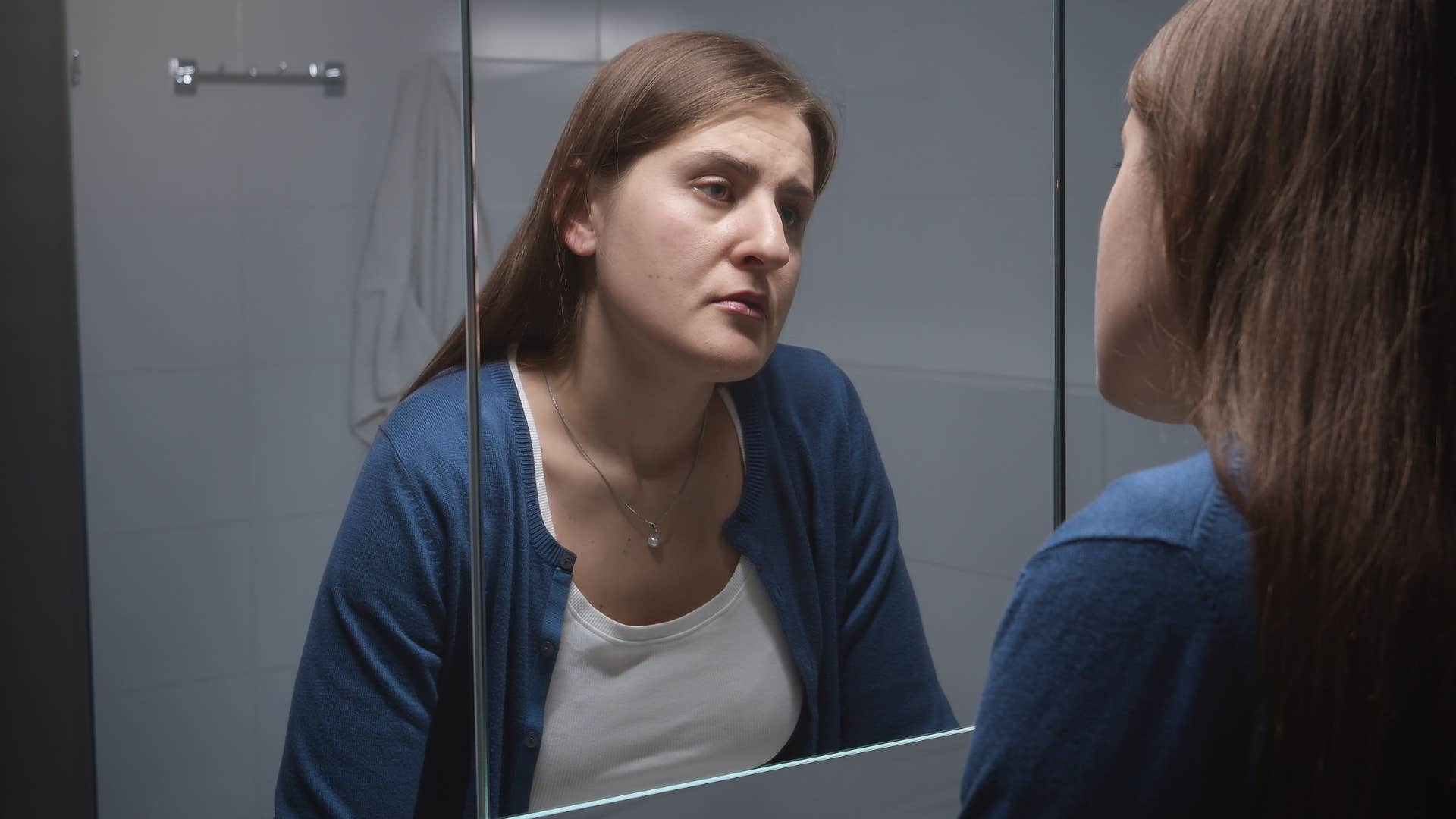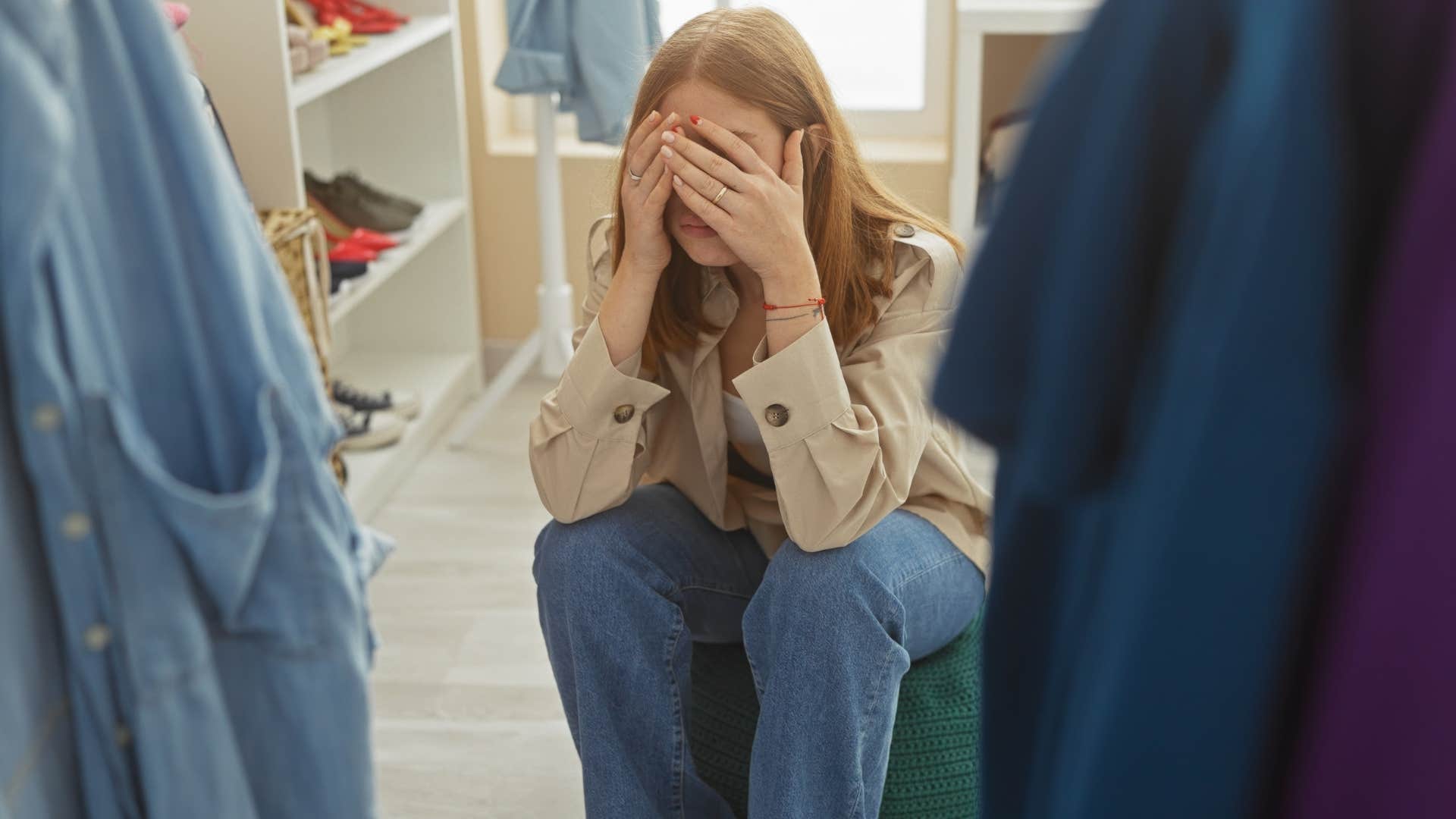If You Notice These 11 Odd Things In Someone’s Home, They’re Actually Very Overwhelmed
Your living space is a reflection of your inner state.
 shurkin_son / Shutterstock
shurkin_son / Shutterstock Our homes are a reflection of who we are, including our self-expressive preferences, our identities, and even our stress levels. When someone visits your place and sees a made bed, a clean space, and a new, lit candle, they feel the kind of comfort and mindfulness that the person who lives there cultivates. However, coffee mugs scattered around the house and clutter spilling out of our closets tell another story, and if you notice these odd things in someone’s home, they’re actually very overwhelmed.
Stress can often seep into our lives and grow subtly in our bodies without much recognition. It fills our homes, sabotages our routines, and even changes the way our bodies respond to things amid the chaos of everyday life. So, it’s no surprise that something as unexpected as our living space also takes on a different shape in the presence of stress and overwhelm.
If you notice these 11 odd things in someone’s home, they’re actually very overwhelmed
1. Half-finished ‘clean-up’ projects
 PeopleImages | Shutterstock.com
PeopleImages | Shutterstock.com
Whether it’s a half-finished “closet clean-out” that’s manifested in donation bags and piles of clothes all around the house, or a kitchen with a million cupboards open in the midst of being emptied, if you notice these odd things in someone’s home, they’re actually very overwhelmed.
Maybe they had the energy to start one of these projects in their most motivated state, but now, they live in a state of constant clutter, trying to work up the energy or find the time to finish.
According to physician Dr. Kristen Fuller, this kind of clutter at home often makes people feel more overwhelmed, leading to stress and visual clutter that only add more information and strain to a person’s brain.
2. Decorations from a season that’s already over
 Krakenimages.com | Shutterstock.com
Krakenimages.com | Shutterstock.com
If a person’s Christmas tree is still up in February or their Halloween decorations subtly become holiday season decor, that could be a sign that someone is overwhelmed. It’s a miracle they had the time to put them up in the first place, but now taking them down and putting them back into storage feels like an all-day affair.
Of course, holiday decorations bring us a lot of comfort and joy all the time, which is why so many people opt to put them up early. But when they’re a constant reminder of a task you have yet to get around to, they can make an already stressed-out person even more overwhelmed every time they come home.
3. A burnt-out candle
 PeopleImages | Shutterstock.com
PeopleImages | Shutterstock.com
If someone’s used up an entire candle, but hasn’t gotten around to tossing it out or replacing it, that could be one of the odd things in their home that reminds you they’re very overwhelmed. Sometimes, it’s these tiny daily tasks and seemingly simple things that become incredibly difficult for people dealing with chronic stress.
They’re living in a constant “fight or flight” mode that not only alters their mind and body but also changes their daily routine and makes small things feel impossible to accomplish.
4. Dirty dishes ‘soaking’ in the sink
 New Africa | Shutterstock.com
New Africa | Shutterstock.com
A study published in the Mindfulness journal found that doing the dishes, which is collectively seen as a hassle by the majority of people, is actually one of the most effective stress relievers. It offers a moment of space for you to not only check something off your to-do list and relieve visual clutter from your space, but also to sit with your thoughts and regulate your emotions.
However, if you notice dishes “soaking” in someone’s space from days ago or overflowing onto the counters, it could be a sign that they’re more overwhelmed and stressed out than they realize. Not only are they missing out on the benefits of doing the chore, but they’re also struggling to find the time and energy to tackle the problem entirely.
5. Random stacks of incense and crystals
 PeopleImages | Shutterstock.com
PeopleImages | Shutterstock.com
Many people rely on spiritual rituals, such as sitting with incense burning or leaning on crystals, to protect their energy levels and reduce stress. In fact, many of these rituals can actually immediately reduce stress if they’re practiced with intention.
However, if you notice these odd things scattered around someone’s home, clearly acting more as decor than an actual tool, they’re actually very overwhelmed. They’re turning to everything and anything for a sense of peace, but struggle to make it a ritual to provoke real relief.
6. Random sticky notes scattered around
 Cast Of Thousands | Shutterstock.com
Cast Of Thousands | Shutterstock.com
Many people dealing with chronic stress experience changes in their daily memory that make remembering even the simplest daily tasks difficult. So, it’s no surprise that if you notice random sticky notes around the house, reminding them to lock the door or even breathe, that they’re actually very overwhelmed.
Of course, whatever works for dealing with stress on a daily basis works, as long as it’s not actively hurting someone’s well-being. However, the true “trick” to managing stress is recognizing and dealing with the root cause, and sticky notes are likely not the cure.
7. A bathroom full of reused towels
 Kyrylo Ryzhov | Shutterstock.com
Kyrylo Ryzhov | Shutterstock.com
If someone’s constantly on the go, dealing with responsibilities, or spending hours at night in an office, chances are basic chores, like doing the laundry, are the last thing they’re worried about. So, if you notice odd things, such as a bathroom without a clean towel, chances are the person living there is actually very overwhelmed.
They’re so internally dysregulated and stressed about their to-do list that reusing the same towels or rewearing the same dirty clothes seems like a better option than cleaning them or starting a load of laundry.
8. Overflowing closets and drawers
 Krakenimages.com | Shutterstock.com
Krakenimages.com | Shutterstock.com
The infamous “junk drawer” that most people have in their homes as a “catch all” for random things is often the natural state of most closets and storage spaces for extremely overwhelmed people.
Nothing has a place, and their belongings are scattered around for convenience, rather than comfort or organization. Even if organizing their space at home is the key to reducing mental clutter, they find it hard to muster the courage or energy to actually start cleaning.
9. Journals buried under clutter
 Soii309 | Shutterstock.com
Soii309 | Shutterstock.com
If someone has things like a journal, crystals, or even workout equipment at home, chances are they’ve hit some kind of breaking point with their stress. They’re yearning for a “cure” to relieve anxiety, but amid the chaos of everyday life, these subtle fixes are overlooked over and over again.
A study published in the Family Medicine and Community Health journal found that expressive writing in a journal can really help to mediate stress and manage mental health, but if someone is overlooking the practice in favor of mindless entertainment or distractions, it’s doing them no good.
10. Tons of empty coffee mugs
 Geber86 | Shutterstock.com
Geber86 | Shutterstock.com
A study published in Frontiers in Psychology argues that regular overconsumption of caffeine often elevates a person’s anxiety levels and can harm sleep in ways that promote other mental health concerns and chronic stress. If you notice things like empty coffee cups scattered around someone’s home, they’re actually very overwhelmed.
They feel like they need a crutch for energy or comfort, so they lean on caffeine, even if it keeps them in a spiral of dysregulation and stress.
11. Take-out containers overflowing from the trash
 Antoniodiaz | Shutterstock.com
Antoniodiaz | Shutterstock.com
If you notice take-out containers overflowing from the trash bin or clear evidence of a million fast food runs in someone’s home, they’re actually very overwhelmed. For some, it’s a convenience. They don’t have the time to grocery shop or cook, so relying on fast food is the next best option.
Unfortunately, convenience is often a high price to pay for someone who’s already struggling with chronic stress and internal dysregulation. According to a study published in the BMC Psychiatry journal, eating junk food regularly is often associated with a higher risk of developing depressive symptoms, which only further adds to the chaos that overwhelmed people feel at home.
Zayda Slabbekoorn is a senior editorial strategist with a bachelor’s degree in social relations & policy and gender studies who focuses on psychology, relationships, self-help, and human interest stories.

